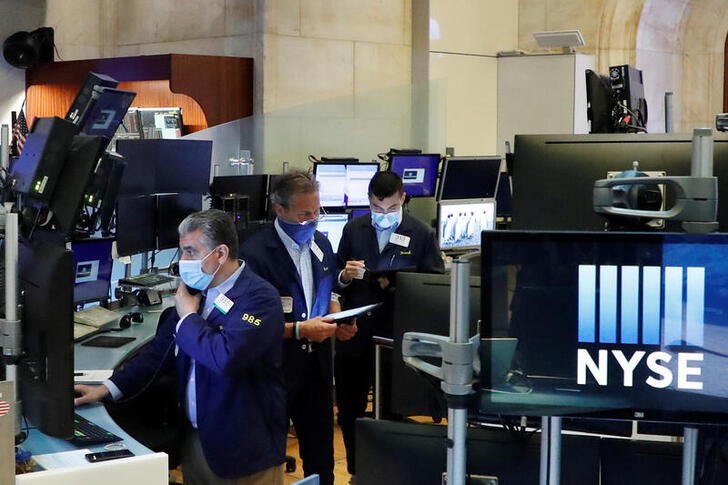This post was originally published on this site
https://i-invdn-com.akamaized.net/trkd-images/LYNXMPEG540VN_L.jpg
(Reuters) – U.S. stock index futures rose on Friday with S&P 500 futures hitting a three-month high, as investors focused on tentative signs of a post-coronavirus economic rebound ahead of another expected plunge in U.S. employment data.
Friday’s report from the Labor Department is likely to show the U.S. unemployment rate shooting up to almost 20% in May, a new post-World War Two record, but investors have so far shrugged off dire data on hopes that an easing of coronavirus-led lockdowns would revive business activity.
The Nasdaq 100 (NDX) became the first U.S. equity index on Thursday to reclaim its all-time high, with the rebound driven partly by tech-related firms including Amazon.com Inc (O:AMZN) and Netflix Inc (O:NFLX).
The Nasdaq Composite (IXIC), which is more closely watched than the Nasdaq 100, is just about 2% below its own record high, while the S&P 500 (SPX) and Dow Jones (DJI) indexes are 8% and 11% below their respective all-time highs.
Fears of more disruptions from social unrest have also reduced in the past two days, with the largely peaceful protests against the killing of a black man in police custody waning into Friday morning and emergency curfews in many cities being lifted.
At 6:11 a.m. ET, Dow e-minis <1YMcv1> were up 270 points, or 1.03%, S&P 500 e-minis were up 20.25 points, or 0.65% and Nasdaq 100 e-minis were up 25.5 points, or 0.26%.
Boeing Co (N:BA) gained 4% premarket on continued optimism about a pickup in air travel a day after American Airlines Group Inc (O:AAL) said it would boost its U.S. flight schedule next month.
Vaccine maker Novavax Inc (O:NVAX) jumped 14.9% after saying it would receive up to $60 million from the U.S. Department of Defense to fund manufacturing of its COVID-19 vaccine candidate.
However, apparel retailer Gap Inc (N:GPS) fell 2.4% as it reported a quarterly loss of nearly $1 billion due to coronavirus-induced store closures.

